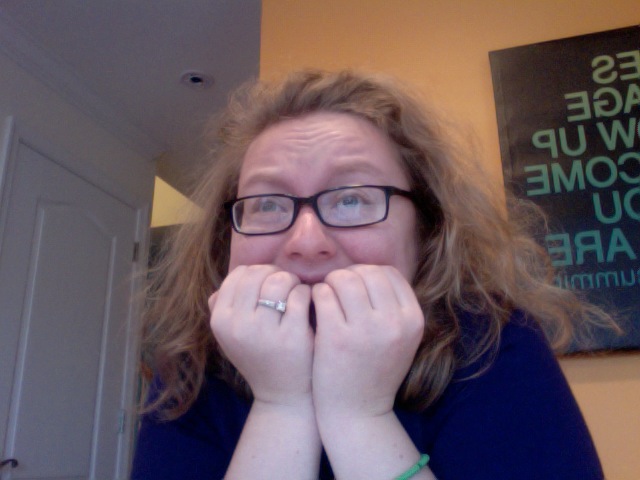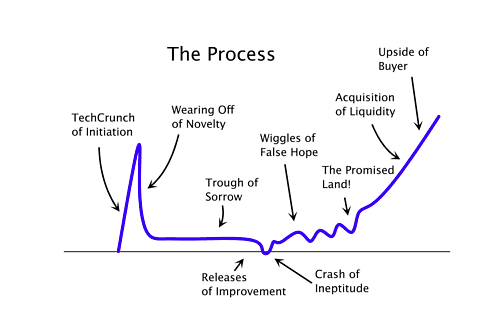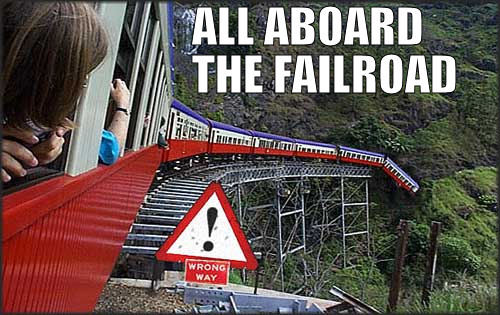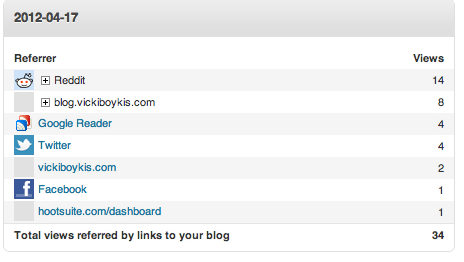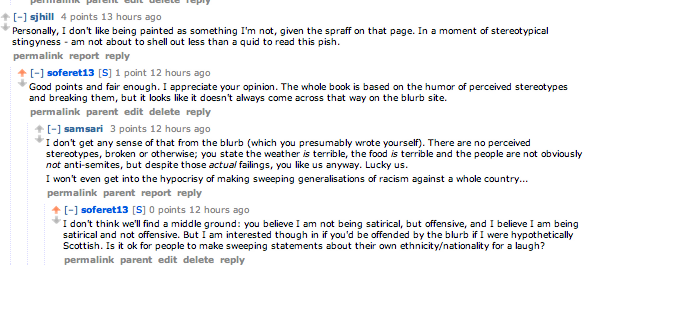I basically just paid myself eight cents an hour to learn that I don’t need an MBA
It’s been a month-ish since I’ve released my ebook. (direct link to Amazon/Pulley here)
I’ve spent over 100 hours writing seven and a half drafts, and thirty hours creating a cover. I’ve gone through six WordPress templates before I finally found the perfect one to market it. I spent days researching the best way to distribute my book, formatting dozens of files for Amazon and EPUB, and reading lots of travel books to better understand the market. I’ve sacrificed my dignity and pimped (or “self-promoted”) my work on blogs and in forums . I’ve been curled up in the fetal position on the floor in my office more times than I can count (5).
The result: I’ve sold 50 books. And I made $20.10.
That’s about eight cents an hour earned. Well, technically,if you count expenses, I owe myself money, but more on that later.
But the money isn’t the end-goal, because, thank God, I don’t need it. This process has taught me more than I’ve ever thought possible about what it takes to be both a writer and an entrepreneur, and that itself is worth thousands of dollars to me. The thousands that I’m already paying for an MBA.
I wrote Scotland because being published has been my life dream for forever. I just wasn’t doing anything about it, except complaining. A couple of things came together to make it happen for real.
First, Mr. B gave me the iPad for my birthday. At first, I didn’t think I’d ever switch from paper books because I’m old-school like that. Then, I started reading books on the Pad via Kindle. And reading. And reading. I’d never purchased and read this many books in my life. Somewhere around October, I realized that people were self-publishing via Kindle, busting the publishing model wide open, and the idea began to dawn on me that I could also ostensibly do this. Never before did I think I could do anything other than go through the agonizing maze of the mainstream publishing industry.
Second, I started my new job last August. I work with data on the bleeding edge of tech, and one of the things I really love about my job is that I get to see products go live frequently. We’re not a startup, but we are agile, and it’s the closest you can get to the fast-paced bootstrappy atmosphere of a startup without having to sell your house for equity. I realized I wanted to use the software development processes I was learning about to discipline myself during the launch of my own release.
Third, I started my MBA this spring. I’ve learned nothing, other than how to make my own coat of arms, and I wanted to see how real businesses worked from the ground up. The reason I went back for the M.B.A wasn’t for the knowledge about how business works. The MBA is really all about the piece of paper. You can’t rise up through job titles without one, even though having one doesn’t give you any more concrete skills than you had when you were going in.
So, one day, I was sitting with my boss in his office.
“How’s school,” he asked.
“It’s ok,” I shrugged. It wasn’t too bad, but it wasn’t too great. I wasn’t learning anything. I knew the MBA was going to be useless knowledge-wise when I opened my statistics book in January and it said, “You may wonder why you need to learn statistics. After all, you will be able to hire people to do this complicated math for you.”
“The MBA is useless,” said my boss.
“But YOU have an MBA,” I protested.
“But I got most of what I got from my program by making connections and doing important stuff outside of class,” he said. “So keep that in mind.”
So I did. And the result of that, as well as all of the other things coming together, was this ebook.
Here are my takeaways from the process. I’m hoping they help anyone that wants to start any type of money-generating side-project of their own.
The beginning is HARD. If you don’t actually commit to doing something, you’ll never even start it. Anne Lamott, a favorite of writers, but also of all creative people, talks about shitty first drafts. Just get it down there. Shitty first drafts are the only thing keeping you from your second draft of anything-a novel, a web app, a painting, a photograph. And oh God were my first drafts terrible. But I just kept writing. What made this time different from the previous times is that I knew for sure that at the end I’d get something that was good. I just had to keep whittling away. And I reread Bird by Bird at least five times.
Have someone who supports you. This is really important. Almost everyone around me thought my book was a whimsical and friviolous pursuit. There were only a couple people who understood that I had to write this book, or I would die, and who actually wanted to discuss the process with me.
Mr. B was my biggest supporter. It’s possible that he has Stockholm Syndrome. But I never felt like he wouldn’t listen to me talk about the problems I was having with the book, or not proofread a chapter, or help me pick a title, or root for me. He made tons of tea, took care of household chores, and generally held down the fort while I was in crazy mode. If he didn’t get it, he would have become very resentful that I was spending whole nights locked up in the office writing. And when I launched the book and we were drinking champagne, he was just as happy as me. Probably because I was going to start cooking dinner again.
The other part of this is that you need support because there is still infinite loneliness in individual business/creative pursuits. Paul Graham talks about the startup curve:
I wasn’t launching Instagram here, but I still felt it, and it takes place exactly like this. There is an initial spike of elation when you’re sure you’re on the right track, then you start getting to the wiggly part where everything is ugly. Everything SUCKS. Your writing is terrible, you don’t understand what you’re doing, you should just scrap the whole thing and call it quits. These were the fetal position moments, and they usually happened around 11:30 PM. This is the hardest part, but it’s also the most important, because if you can weather that storm, you’re going to finish what you started and smooth out all of the rough patches. You just need to have someone to anchor you through the storm of crazy, to tell you that . For me, it was Mr. B. And the last stanza of this poem. Also, Stuart Smalley.
The closer you are to producing it yourself, the more money and control you keep. And, give your customers choice. I had a couple choices for publishing: Amazon for Kindle, Smashwords for everything else (Sony, Nook, etc.), and self-hosting (you pay via Paypal, download all the filetypes you need in a zip file). The first two mean you don’t have to deal with administrative overhead, which includes managing people’s money. As an amateur businessperson, I wanted to stay far, far away from ever handling money online. It’s just a deathtrap legally if you don’t do it right. But I also wanted at least some degree of control. Once you submit the file to Amazon and Smashwords, you have no control over how it goes through their formatting grinder.
So I decided to test both. One version would be on Amazon via Kindle so you could download it with one click, the other version would be through Pulley, where you pay through Paypal and get the EPUB+PDF file, DRM-free. It was really important to me not to have any DRM as much as possible for a one-person business who was completely in control of the factors of scale of Amazon and PayPal.
If your book is priced less than $2.99 on Amazon, you only get to keep 35% of each sale. So, that’s .35 cents if your book is .99. If you do Paypal, they takes 33% of each dollar. Plus the $6 monthly cost for Pulley, the distribution system. The upsides with Amazon are that everyone trusts Amazon. When’s the last time you’ve bought a book not through Amazon? And what do you immediately look at? Amazon reviews. The downside is the painstakingly long editing process, and the blackbox that is KDP where you format your book one way and it comes out another.
The downside of Pulley is that no one wants to buy and read via PDF/EPUB then have to transfer it themselves to their device of choice, but you know every single person who’s purchased your book, you can change the file just like that, and you have a minute-by-minute track of your money. Amazon doesn’t give you that. The split for the book so far has been about 60% Kindle, 30% Pulley.
And then there are also taxes. But I don’t want to think about those yet. But Basically, with 50 sales, I should have made $50. I made $20. Painful, and something they don’t really teach you in your MBA.
Launch strong, but iterate constantly (and admit mistakes). Sites and web services constantly launch in beta and then make changes on the fly as users suggest them or they see errors. Books work a little differently, because every word has to be perfect the first time, otherwise you’re going to lose the reader’s interest right away. So I went through it myself six times. Then I had Mr. B read it. Then I edited once more. Then I read through separate paragraphs. The first chapter was the critical one, because that’s what’s in the Amazon book preview. I was sure I caught everything. Then I was sure. And I published to Amazon. Once you publish to Amazon, you lose all control of seeing how the finished product looks and there’s a 12-hour turnaround time for iterations.
I beta-tested on Mr. B’s mom and my mom. Mr. B’s mom downloaded on Kindle on her iPad and my mom downloaded through Pulley on Saturday. The distribution system worked well. Now they were reading it, but not saying anything. I assumed everything was kosher, so I launched on Monday.
Real People started buying the book and reading it.
Two days later, my mom sent me an email saying she’d found typos and repeated paragraphs. My blood ran cold. Because I hate typos, and I hate people judging me for typos. I frantically searched the Amazon Q+A section to see if you republish the book, whether the changes iterate on the reader’s Kindle. They don’t. But I had upwards of 8 people that bought it on Kindle already. I died a little on the inside.
I talked to a couple people who I knew had already bought it, and asked how much the typos bothered them. They said it wasn’t a huge deal, but I couldn’t tell whether they were being honest or trying to save me from a meltdown. I didn’t sleep all night. I couldn’t figure out what do to. Do I try to find out who bought it on Amazon and give them another copy? Too messy, too unprofessional. What about the Pulley people? How do I get the word out? Does this mean I’m done as a writer?
The next day, I sat down at the computer and edited the book again, and I made Mr. B look at it, too. By this point, I was so sick of it that I didn’t care if I ever read another word I wrote about Scotland again. It was just nauseating to look at. I now understand when writers say they know when it’s time to let something go. Because you can’t look at it anymore, no matter how many loose ends still need to be tied up. But I forced myself to do it. And I fixed everything I could find. Then I decided to resend the file to the people who’d bought it on Pulley with a huge apology.
In retrospect, I should have hired a copyeditor, but it was only my first book and I didn’t want to incur crazy costs. Next time, I’m definitely doing it. My reputation is worth more to me.
And, another thought on launching and iterating:
**Timeboxing. **Do it. I started working in the middle of January and gave myself a finish deadline of April 16th, aka the Battle of Culloden (relevant to my book!). Then I hyped it up on the blog. If you don’t pressure yourself to finish, you’ll never do it.
Marketing is dirty and gross, but someone has to do it. The first day I released my book, there were a lot of visits to the site. I know because I was constantly monitoring outgoing links on my blog and incoming links on my ebook:
The big bar is the day of launch. The one after that is the next day, but the majority of visits aren’t coming from my blog or my Twitter or my Facebook, where I tried as tactfully as possible to announce to people who might be interested that Hey! I have a fun travel book about Scotland out! It’s really cheap! Come check it out. They’re coming from Reddit:
Why? Because I wrote a post on r/Scotland about how awesome Scotland is, and how I decided to write a travel book about it. I thought it was going to be well-received, because who doesn’t like hearing about someone enjoying their country? The problem is that I included copy that alluded to a mildly anti-Semitic experience I had on the trip. It was pretty humorous, but I exaggerated it for comedic effect on my book site, and I guess the Scots don’t like being portrayed as anti-Semites? Who knew! This spawned a pretty hostile thread:
I wanted to die. However, this Reddit link did generate lots of traffic to my book site, really reinforcing the “there’s no such thing as bad publicity.” Marketing was my least-favorite part of the whole process. I’ve always regarded it as bullshit, but it turns out there’s a lot in how you present yourself. I just hated presenting myself. I knew I had a good product at a good price, a light, funny travel read for a couple of nights for anyone interested in Scotland, Russia, Jews, or just travel narratives. I just didn’t know how to present it without being grating or LOOK AT ME.
I’ll have to do a little more research, because marketing honestly does boost blog traffic.
And finally:
Do something that gives you joy. Otherwise you’ll kill yourself in the process. I LOVE WRITING. I love travel. I loved Scotland. I love travel essays. I loved researching Scottish history. I love writing stuff that makes people laugh. I love reading travel books. So it was awesome. If I hated all those things, I wouldn’t have been able to work on this book in a month where I was working 11-hour days, doing class on Mondays and sometimes on weekends, and generally trying to deal with the real world as well. If you do something you love, it’s really not work. It’s an accomplishment.
This is all really good advice for anyone who wants to do anything creative. Especially for me, because I started working on Book #2 last week.


